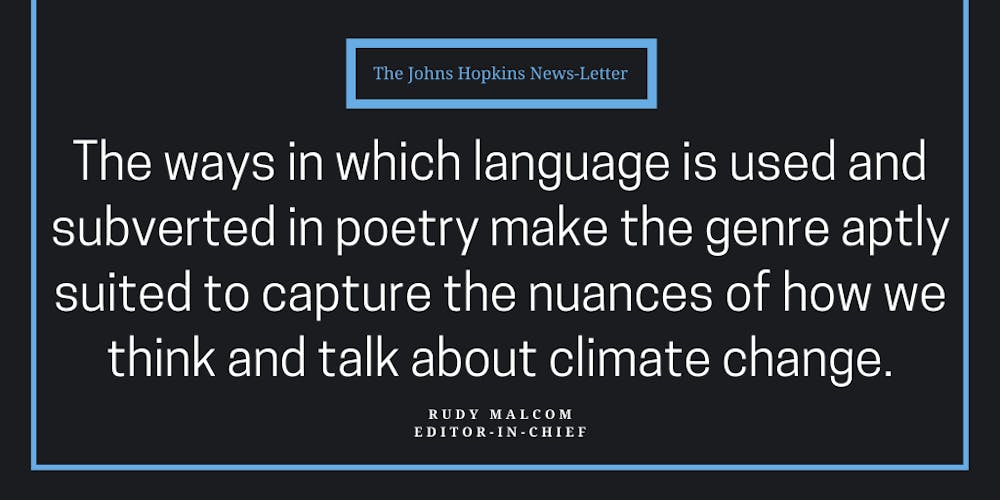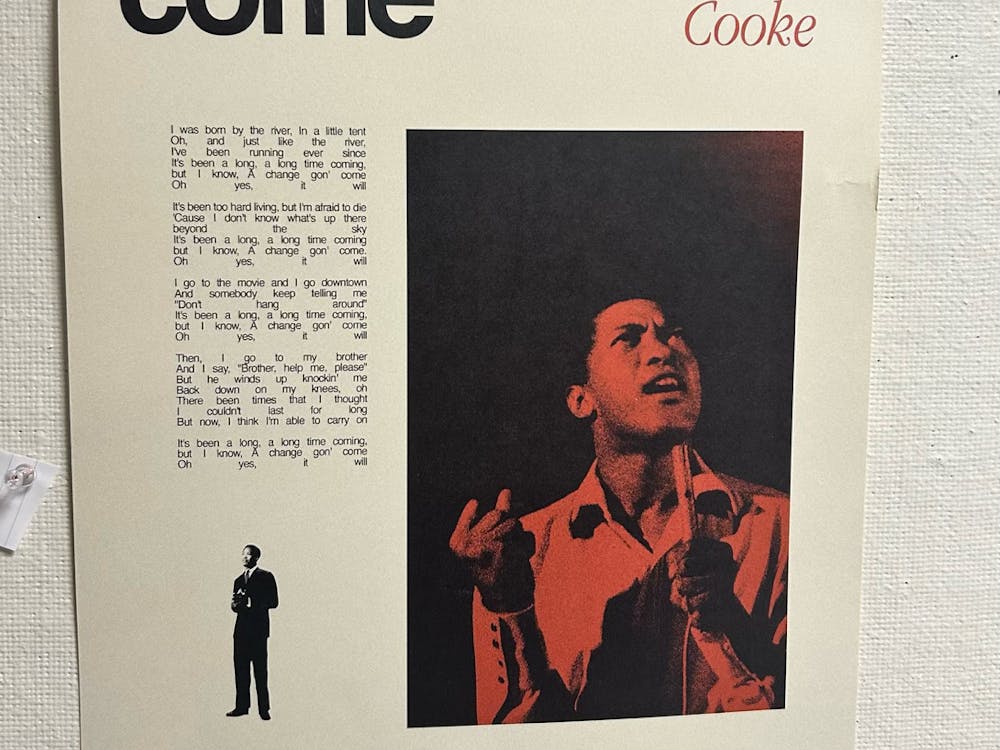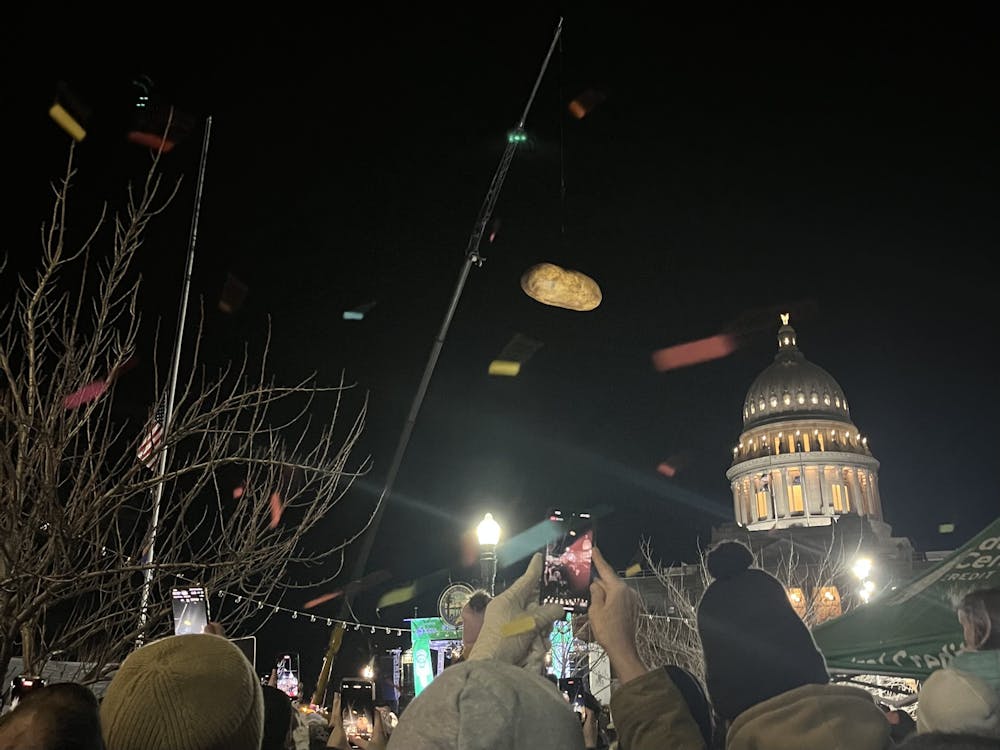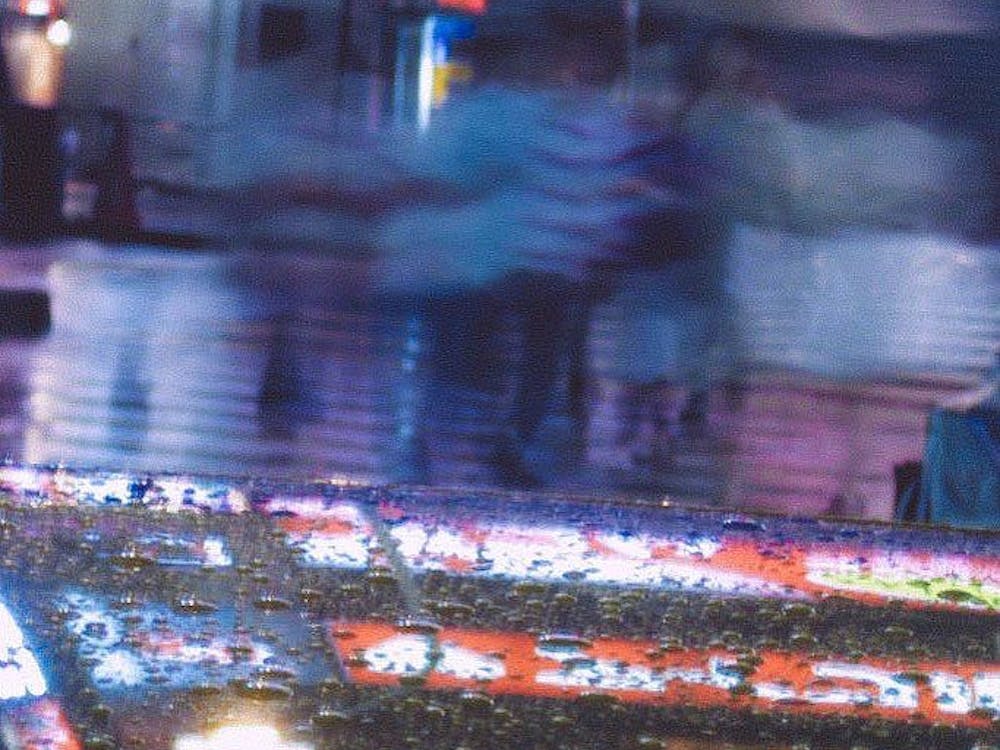This Intersession, I took a course titled Poetry and Climate Change, taught by English graduate student Alex Streim. I’d initially thought that the class would entail penning sonnets to stop the ice caps from melting. Indeed, on the last day, we were encouraged to share original work (I’m really proud of this line I wrote: “Is that a sustainable metal straw in your organic cotton pants, or are you just happy to see me?”).
Otherwise, though, we didn’t have any poetry assignments; instead, we read poetry. Some poems were explicitly about global warming. Some were not, but we interpreted them through an ecocritical lens, extracting from these texts feelings and ideas related to climate change discourse — lament, revolt, defiance, awe, existentialism.
By discussing poetry, we explored how climate change is past, present and future. How climate change is simultaneously breaking news and old news, something continents away and something right next door. How climate change is something we caused but something we might not be able to control. How climate change is the individual’s responsibility but also that of the corporation. How 70 percent of three decades’ worth of greenhouse gas emissions are from just 100 companies and how, at the same time, climate change isn’t (and is) turtles whose noses are impaled by straws.
As a Writing Seminars major, I’ve had a love-hate relationship with poetry, but this course gave me a renewed respect for it. This course showed me how the ways in which language is used and subverted in poetry make the genre aptly suited to capture the nuances of how we think and talk about climate change — about nature and society. For example, despite my earlier hatred for a lot of experimental poetry, I now realize that its unintelligibility can have symbolic meaning. It can convey the unknown and the unknowable, the uncertainty of the Earth’s future.
It is important that climate change discourse incorporate poetry — and the humanities in general, perhaps especially in the Anthropocene, which Merriam Webster defines as “the period of time during which human activities have had an environmental impact on the Earth regarded as constituting a distinct geological age.” In his book Learning to Die in the Anthropocene, American writer Roy Scranton argues that it is most likely too late to do anything about climate change.
“From the perspective of many policy experts, climate scientists, and national security officials, the concern is not whether global warming exists or how we might prevent it, but how we are going to adapt to life in the hot, volatile world we’ve created,” he writes.
According to Scranton, “to philosophize is to learn how to die,” and we as a civilization must learn to die. Climate change requires, he claims, “a new way of thinking about our collective existence” and “a newly philosophical humanism, undergirded by renewed attention to the humanities.”
“The sooner we confront our situation and realize that there is nothing we can do to save ourselves, the sooner we can get down to the difficult task of adapting, with mortal humility, to our new reality,” he writes.
I don’t necessarily agree with this perspective. And I don’t like to think about whether it’s too late to do anything about climate change. Yet that’s part of Scranton’s point. Regardless of whether we’re inevitably doomed or if we still have a chance to avert Armageddon, we need tools to think about rising sea levels, about bushfires in Australia. We are often desensitized to news reports about melting ice caps and ballooning carbon footprints, but poetry can help us feel.
Some of my favorite works from the class were Jorie Graham’s “Underworld,” which depicts the beauty of an apocalyptic flood; Patricia Smith’s Blood Dazzler, a powerful rendering of Hurricane Katrina; and Juliana Spahr’s “Unnamed Dragonfly Species.”
In the final poem, Spahr describes people who attempt to ignore climate change, who “tried to balance out all their anxiety with loud attempts at celebrations of life... in often ineffectual ways.”
“They might talk loudly and excitedly with friends about the latest blockbuster summer movie as if that really mattered to them and they could live with the changing landscape because they had things like movies and books and friends and drugs,” Spahr writes, “things that were common in cities and when in the cities they liked to tell themselves that this was enough, that these things were good enough so that the melting didn’t matter.”
We might attribute willful ignorance of climate change to apathy or indifference, but Spahr suggests that, in reality, it might be indicative of overwhelming concern. This definitely isn’t always true; however, it is something worth considering, particularly at Hopkins.
In February, the Second Commission of Undergraduate Education — co-chaired by Deans Beverly Wendland and Ed Schlesinger of the Krieger School of Arts and Sciences and the Whiting School of Engineering, respectively — suggested changes to the undergraduate curriculum, reflecting on mental health on campus.
“According to the American College Health Association, more than 50% of American undergraduate and graduate students reported feeling anxiety in the past year; more than 30% felt so depressed at times that it was difficult to function,” the report reads. “The highly competitive academic and co-curricular atmosphere at Johns Hopkins compounds that anxiety and depression: our students report greater stress than those at other schools.”
Papers and problem sets often deprive us of the energy needed to care about what’s happening outside the soapy walls of the Hopkins bubble, or even outside the confines of our cubicles. School work can feel inundating in the short term, but the ocean is going to literally inundate us in the long term. We need to be thinking — and doing something — about it.
I burned out during the fall semester; I often felt like I was floating through the days, but “Poetry and Climate Change” helped reground me in the reality of something bigger than myself.
It is important to know data about greenhouse gases and above-average temperatures, about how quickly the ice caps are melting. But we need the humanities to appreciate the implications of what scientists are telling us about the planet that humankind is killing.





